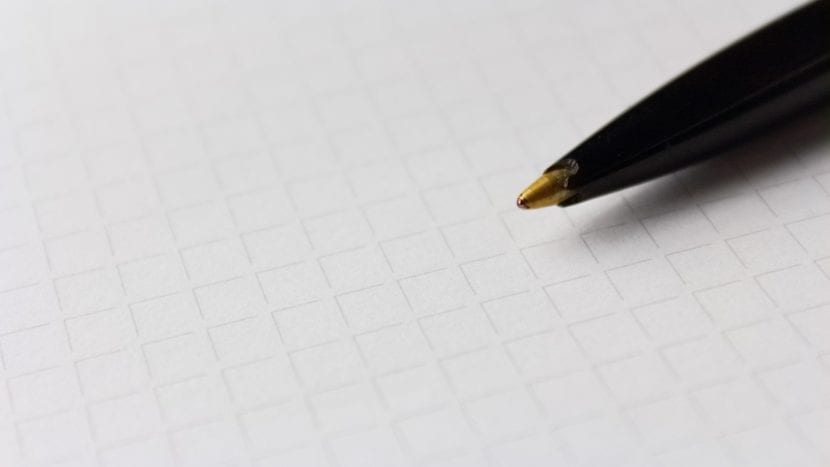
Many of us have ever fantasized about the idea of write a novel, thus shaping that story that suddenly occurs to us or that has been hanging around our head for years.
However, sometimes due to laziness, sometimes due to lack of time, and in most cases due to not knowing where to start we put this idea aside and end up forgetting about it.
The truth is that writing a novel is a task that entails a remarkable effort, a lot of perseverance and above all a series of technical knowledge that it is impossible to neglect if we want to succeed in our difficult but exciting company. exist several aspects that we must not neglect if we intend to take our narrative creations seriously.
Throughout this article we will present them briefly and in the successive ones we will stop at each one of them, defining them and making some notes of interest, as well as offering various tips about. Of course, the intention of this post is not to offer great news in this regard (since the profession of novelist is too old and thousands and thousands of essays have been written on how to face the creative process in narrative) but rather it pretends to be something as well as a kind of compendium of the main points present in the vast majority of manuals. That is why in this first contact we will limit ourselves to seeing the 10 points that we believe are essential to write a novel, and in the successive ones we will delve into each one of them in detail, adding in this same article the relevant links as they are Let's publish so that you can access them with a simple click.
Composition of a script or an outline
Although each one follows their own method to develop their novel, one of the most repeated tips in the various narrative courses and manuals is the creating an outline or script that allows us to know where our history is heading. This is usually preceded by a brainstorming in which, as a draft, the different ideas and scenes that will form the backbone of the narrative are turned over. Once obtained, they are arranged in the rundown, which, in a more or less detailed way, describes each scene or each chapter of the work, being a kind of skeleton or guide of the same that will allow us to advance safely.
The creation of the characters
Another point that we must not neglect is the creation of credible characters, with recognizable characters and with their own conditioning and contradictions, always avoiding creating mere puppets without their own personality. It is because of that we must work well on the psychology of each one of them being essential, according to the majority of narrative creation manuals, the elaboration of character sheets that allow us to know them in depth and internalize their objectives and motivations before putting them to act or speak. In its corresponding article we will offer some keys to achieve the aforementioned verisimilitude of our characters as well as a proposal of the cards that we will use to collect all the information about them before starting to write.
The narrator
Although not everyone is clear about it, the narrator is a fictional entity totally different from the writer of the work. It is the essential voice of the novel, which could not exist without its presence. It is essential to know the types of narrator that exist and the characteristics of each of them in order to choose the one that best suits the story we want to tell to enhance its quality. We must also respect the choice we make, staying true to it and without the narrator contradicting his own figure. At the time we will stop about each of the existing types of narrator and their characteristics.
Weather
The treatment of time is another of the essential factors to build a novel with a certain solvency. For this we must differentiate various aspects related to time as are the time in which the story is set, the duration of the events and the temporal rhythm of the novel with its amplifications, digressions, summaries and ellipsis. A priori it seems something simple, but as we will see shortly, it is a task that requires a lot of effort and attention. We will delve into the temporal aspects in some of the following articles.
Space
No less important than time is the space in which the action takes place. At this point it is very important to document if we plan to set our novel in a real place, as well as masterfully perform the relevant descriptions that allow the reader to get a good idea of the location we have chosen. The development of space cards is a good idea to be consistent throughout the work with the space designed for it.
Documentation
Despite appearing in sixth place, it is one of the first things we must do, possibly after (or during) the development of the rundown, in order not to have to stop the process of writing the novel longer than it should be. once we have entered the task. However, it is something that does not end in the phase prior to writing since as we progress in our creation, new aspects will emerge on which we will need to document ourselves to achieve credibility to the narration. If it is a historical novel, this is presented as one of the fundamental aspects to obtain a remarkable result.

The style
Most narrative manuals are very clear on style: try to be clear, sound natural and avoid artificially engorged language: do not say with two words what you can say with one. In due course, in successive articles, we will see the importance of clearly differentiating the style of the narrator from the style used in the dialogues, which must be subject to the way each of the characters speak. We will also try to point out certain common mistakes that we should try to avoid.
Embedded stories
The presence of inserted stories is common in the narrative, that is, of stories secondary contained within the main story, and that are often referred to by one of the characters. It is a procedure that gives great richness and complexity to the novel and that on occasions has served to structure entire works such as "The Thousand and One Nights." It is necessary to know this technique well to be able to carry it out satisfactorily.
The review and correction process
It is important to be critical of what we write, both once the work is finished, in order to correct possible errors or improve those passages with which we are not entirely satisfied, such as during the writing of the same, to avoid having to change too many fragments after finishing. Sometimes we can count on external help (either professional or the simple but valuable opinion of readers of our environment in whose criteria we trust) but the last word of what has to be changed is solely and exclusively ours. It is possibly one of the most tedious and repetitive phases of the process, due to its lack of creativity and the anger that comes from having to erase what it has cost us to write at the time, but it depends on whether the result of our novel is satisfactory.
The attitude
To be a writer ... you have to have writer attitude. In short, this means being very clear about why we want (or need) to write, but above all ... get down to work and do it. The world is full of writers who have never spun more than two paragraphs, but who in their heads are potential creators of bestsellers who are just waiting for the necessary conditions to delight us all with their work. They certainly don't know yet the trade. Starting to write is as necessary as creating a routine and writing habits, having some constancy, read as much as possible to continue learning and above all, the most important thing: enjoy what we do, since otherwise none of this would make sense.
The ten points are, I think, very reasonable. Loaded with reasons and judicious opinions on the profession of writing. However, I think that, as in everything, everyone has their uses and customs, but others avoid rules and routines, let their brain dictate to the clumsy hands that are slowly advancing in their task of transcribing scraps of an unclear story.
The order always seems advisable but, just as many writers use the described method with application and conviction, there are also those who are carried away by the urge to write as it springs from their memory, from their dreams or nightmares, which will finally be a history of which he does not know a priori the course or the end. This type of author will be, could be, the first surprised by the story told when writing the word END.